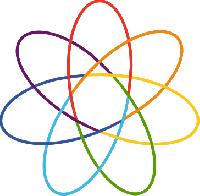| Páginas no tópico: [1 2] > | Translation of references in a scientific paper Tópico cartaz: cris_fo (X)
|
|---|
cris_fo (X)
Brasil
Local time: 00:54
inglês para português
Hi.
I'm translating a scientific paper from Portuguese to English. I would like to know if I have to translate the reference. I learned at college that we should not translate the references, but should I not translate "disponível em", "acessado em", and book's title between parentheses? Or it depends on what journal the paper will be published? The client does not know where he is going to publish.
In advance, thank you so much.
| | | | Adieu 
ucraniano para inglês
+ ...
Translate everything, [square bracket] the original title
| | | |
I also translate "available at", "last access" and the likes, as the target reader would not understand or would at least find it odd to have these in a foreign language.
Titles obviously must not be translated as they are original references. What sense would it make to invent a title translation? The target reader needs to be able to check the actual source if needed. Or even worse to use the official translation, if one exists? The page reference and quote text match the origina... See more I also translate "available at", "last access" and the likes, as the target reader would not understand or would at least find it odd to have these in a foreign language.
Titles obviously must not be translated as they are original references. What sense would it make to invent a title translation? The target reader needs to be able to check the actual source if needed. Or even worse to use the official translation, if one exists? The page reference and quote text match the original and not the translated version!
The solution of putting titles in brackets is completely foreign to me. Has anybody ever seen this done in publications?
[Bearbeitet am 2021-09-20 06:01 GMT] ▲ Collapse
| | | | Adieu 
ucraniano para inglês
+ ...
| Square brackets | Sep 20, 2021 |
Square brackets are used to convey information to readers who do not understand the source language without destroying the searchability by providing an unofficial translation of a name
Convention is wonderful and all and there is indeed some expectation of mutual intelligibility between European languages in Latin script, but would references in Korean or Mandarin be of much use to many people? I vote for common sense.
Ines R, PhD wrote:
I also translate "available at", "last access" and the likes, as the target reader would not understand or would at least find it odd to have these in a foreign language.
Titles obviously must not be translated as they are original references. What sense would it make to invent a title translation? The target reader needs to be able to check the actual source if needed. Or even worse to use the official translation, if one exists? The page reference and quote text match the original and not the translated version!
The solution of putting titles in brackets is completely foreign to me. Has anybody ever seen this done in publications?
[Bearbeitet am 2021-09-20 06:01 GMT]
[Edited at 2021-09-20 06:39 GMT]
| | |
|
|
|
Barbara Carrara 
Itália
Local time: 04:54
Membro (2008)
inglês para italiano
+ ...
| Refs. & titles et cetera | Sep 20, 2021 |
Cristiane Ferracioli Oda wrote:
I'm translating a scientific paper from Portuguese to English. I would like to know if I have to translate the reference. I learned at college that we should not translate the references, but should I not translate "disponível em", "acessado em", and book's title between parentheses? Or it depends on what journal the paper will be published? The client does not know where he is going to publish.
I agree with previous posters re. the need to translate the refs. If an EN version of the ref. websites exist, you might want to add those as a comment for your client to consider. And that also goes for any titles of original works translated into English, which you'll have to source, including full bibliographic refs. (publisher, year of publication, translator...). But again, it's up to your client to decide how to deal with these and what to include or leave out.
Re. style, the publisher have the last word, depending on their style guidelines.
So, who is your client (don't mention him/her/them by name, of course, but give us a hint: author, institution, agency)?
Will your client be also responsible for editing your translation, since you are translating out of your native language?
Last but not least, hopefully the subject matter of this scientific paper is something you are very familiar with.
Tell us more.
[Edited at 2021-09-20 08:22 GMT]
| | | |
Has anybody ever seen references translated in a scientific journal? I haven't, neither in Translation Studies nor in Life Science, but I would be very interested to know if there are any.
| | | | John Fossey 
Canadá
Local time: 22:54
Membro (2008)
francês para inglês
+ ...
| What about references in a CV? | Sep 20, 2021 |
In translating the CV of an academic, there are many published works and papers with titles in the source language. A CV can be used for many purposes, ranging from fellow academics who can probably understand the source language, to reporters and the general public, who don't. Would the titles get a reference translation in this case?
| | | | Helen Shiner 
França
Local time: 04:54
Membro (2008)
alemão para inglês
+ ...
| Translation vs foreign-language edition | Sep 20, 2021 |
The sources in footnotes should not be translated. Any running text should be, such as cf., see, etc. I translate place of publication and venue, in the case of exhibition catalogues, for instance. But only if there is an established English name for that venue. Don't make one up.
I edit the footnote style to correspond with the required style guide. Ask your client what the respective journal/book calls for in terms of style. Don't just presume.
Where a source has be... See more The sources in footnotes should not be translated. Any running text should be, such as cf., see, etc. I translate place of publication and venue, in the case of exhibition catalogues, for instance. But only if there is an established English name for that venue. Don't make one up.
I edit the footnote style to correspond with the required style guide. Ask your client what the respective journal/book calls for in terms of style. Don't just presume.
Where a source has been translated into English (*replace with your target language), often clients ask for the correct page reference in that foreign-language edition to be referenced instead of the original publication - to match the pagination in the official (established) translation.
Please never consider translating a source title - how will a reader find it in a library? And no-one wants a translation in brackets - at least, I have never seen such a thing. If they cannot master a title in whatever language the original was written, they are not going to be able to read the original text, either way, surely?
[Edited at 2021-09-20 19:31 GMT] ▲ Collapse
| | |
|
|
|
cris_fo (X)
Brasil
Local time: 00:54
inglês para português
CRIADOR(A) DO TÓPICO | I discussed it with the client | Sep 20, 2021 |
My client is the author of the text. I contact him, and he said he will not publish it in a scientific journal. His only intention is to post it on his Lattes Platform. Also, he is who is going to edit my translation.
| | | |
Helen Shiner wrote:
Please never consider translating a source title - how will a reader find it in a library? And no-one wants a translation in brackets - at least, I have never seen such a thing. If they cannot master a title in whatever language the original was written, they are not going to be able to read the original text, either way, surely?
[Edited at 2021-09-20 19:31 GMT]
I occasionally translate titles to English for the benefit of those who do not read Arabic. No, they will not be able to read the book, but they will at least know what the book is about. For example, this is a reference that appears in a bibliography I recently edited (translation in bold):
Ibn ʿAsākir, Abī al-Qāsim ʿAlī b. al-Ḥasan b. Hibat Allāh al-Shāfiʿī (d. 571 AH / 1176 CE). Tārīkh Madīnat Dimashq [The History of the City of Damascus]. Edited by Muṣṭafá ʿAbd al-Qādir ʿAṭā. Beirut: Dār al-Kutub al-ʿIlmiyyah, 1979.
| | | | | Medical papers | Sep 21, 2021 |
Ines R, PhD wrote:
Has anybody ever seen references translated in a scientific journal? I haven't, neither in Translation Studies nor in Life Science, but I would be very interested to know if there are any.
The US National Library of Medicine's PubMed/Medline database uses English titles in square brackets for publications whose original title is not in English.
This English title would conventionally be used (with the brackets) in the reference list of another English-language paper that cites the non-English publication.
| | | | Adieu 
ucraniano para inglês
+ ...
Because "History of Damascus" written in the 12th century is what actually matters.
Arabic & More wrote:
Helen Shiner wrote:
Please never consider translating a source title - how will a reader find it in a library? And no-one wants a translation in brackets - at least, I have never seen such a thing. If they cannot master a title in whatever language the original was written, they are not going to be able to read the original text, either way, surely?
[Edited at 2021-09-20 19:31 GMT]
I occasionally translate titles to English for the benefit of those who do not read Arabic. No, they will not be able to read the book, but they will at least know what the book is about. For example, this is a reference that appears in a bibliography I recently edited (translation in bold):
Ibn ʿAsākir, Abī al-Qāsim ʿAlī b. al-Ḥasan b. Hibat Allāh al-Shāfiʿī (d. 571 AH / 1176 CE). Tārīkh Madīnat Dimashq [The History of the City of Damascus]. Edited by Muṣṭafá ʿAbd al-Qādir ʿAṭā. Beirut: Dār al-Kutub al-ʿIlmiyyah, 1979.
| | |
|
|
|
| | | | Tina Vonhof (X)
Canadá
Local time: 20:54
holandês para inglês
+ ...
| Re: square brackets | Sep 21, 2021 |
Adieu wrote:
Translate everything, [square bracket] the original title
I agree with square brackets but I would put the English in square brackets, because if someone wants to search for that reference, they will have to do that in the original language and then use your translation to understand the content. In general, square brackets should be used for anything (translations, missing words, etc.) that is not in the original text.
I think the references in this article should be listed and translated wherever necessary (for example the words 'volume' and 'number' of a publication, because that will be useful in searching), since the client is not sure yet where it will be published and what the requirements of the publisher may be. They can easily be deleted if not required.
[Edited at 2021-09-21 18:04 GMT]
[Edited at 2021-09-21 18:06 GMT]
| | | | | Páginas no tópico: [1 2] > | To report site rules violations or get help, contact a site moderator: You can also contact site staff by submitting a support request » Translation of references in a scientific paper | CafeTran Espresso | You've never met a CAT tool this clever!
Translate faster & easier, using a sophisticated CAT tool built by a translator / developer.
Accept jobs from clients who use Trados, MemoQ, Wordfast & major CAT tools.
Download and start using CafeTran Espresso -- for free
Buy now! » |
| | Protemos translation business management system | Create your account in minutes, and start working! 3-month trial for agencies, and free for freelancers!
The system lets you keep client/vendor database, with contacts and rates, manage projects and assign jobs to vendors, issue invoices, track payments, store and manage project files, generate business reports on turnover profit per client/manager etc.
More info » |
|
| | | | X Sign in to your ProZ.com account... | | | | | |



























